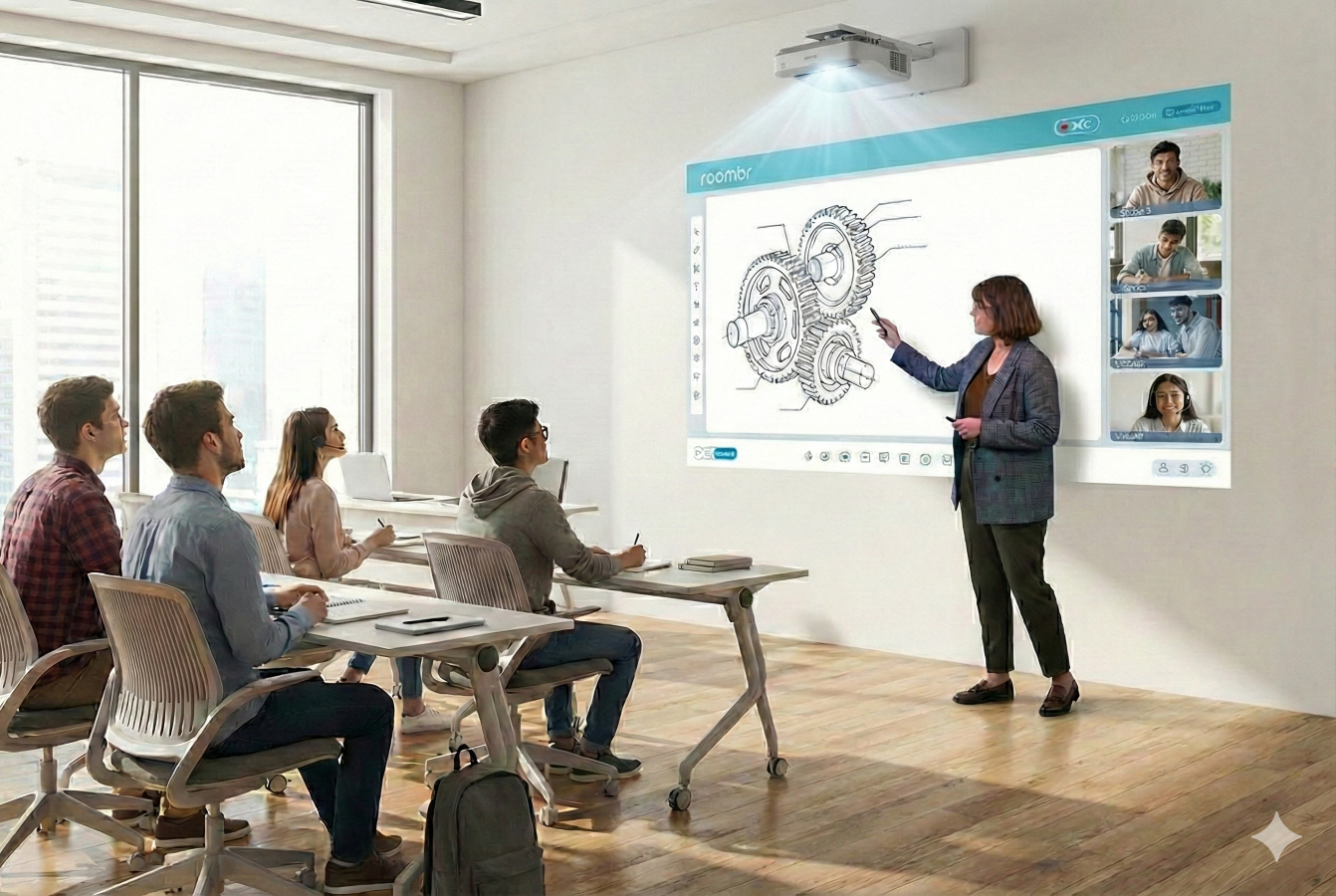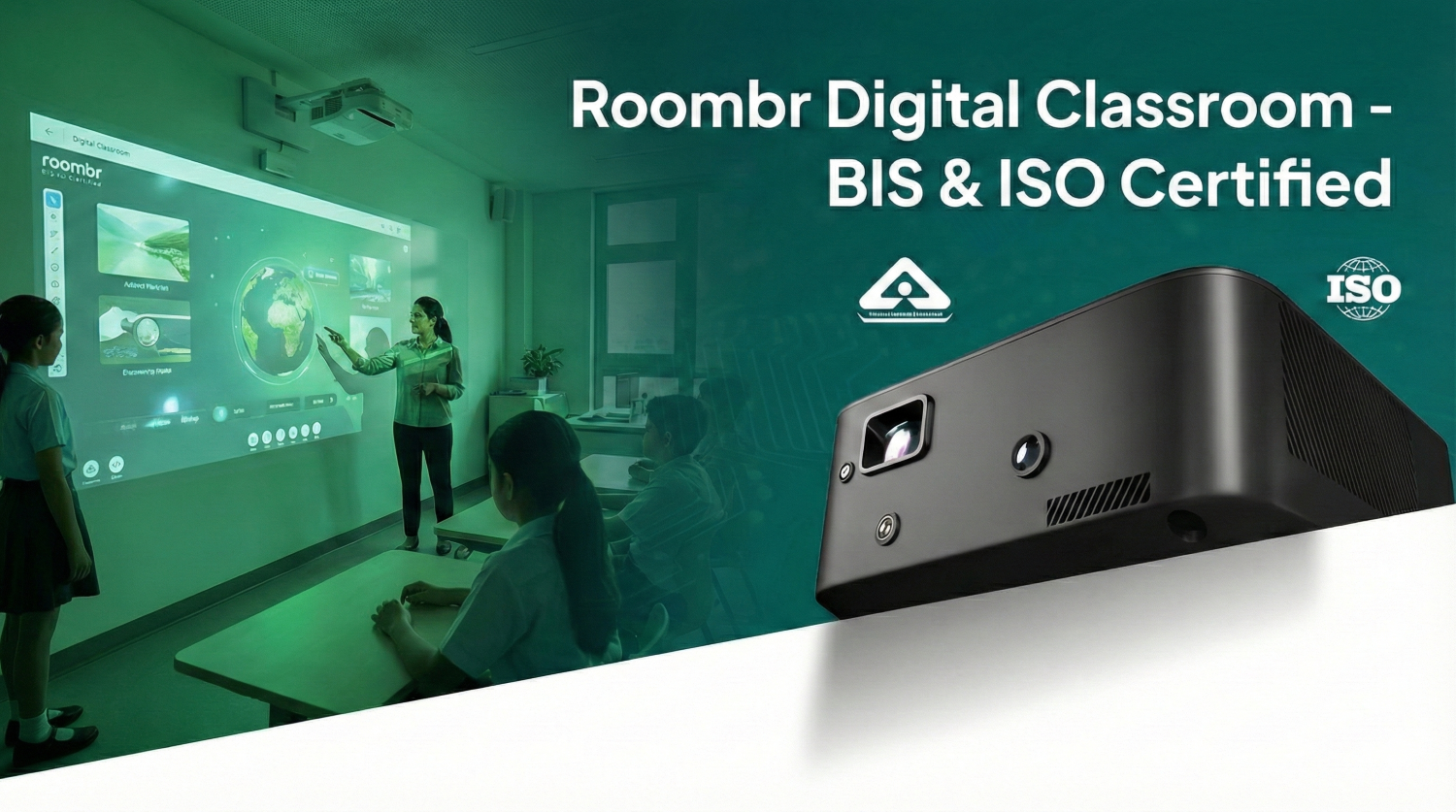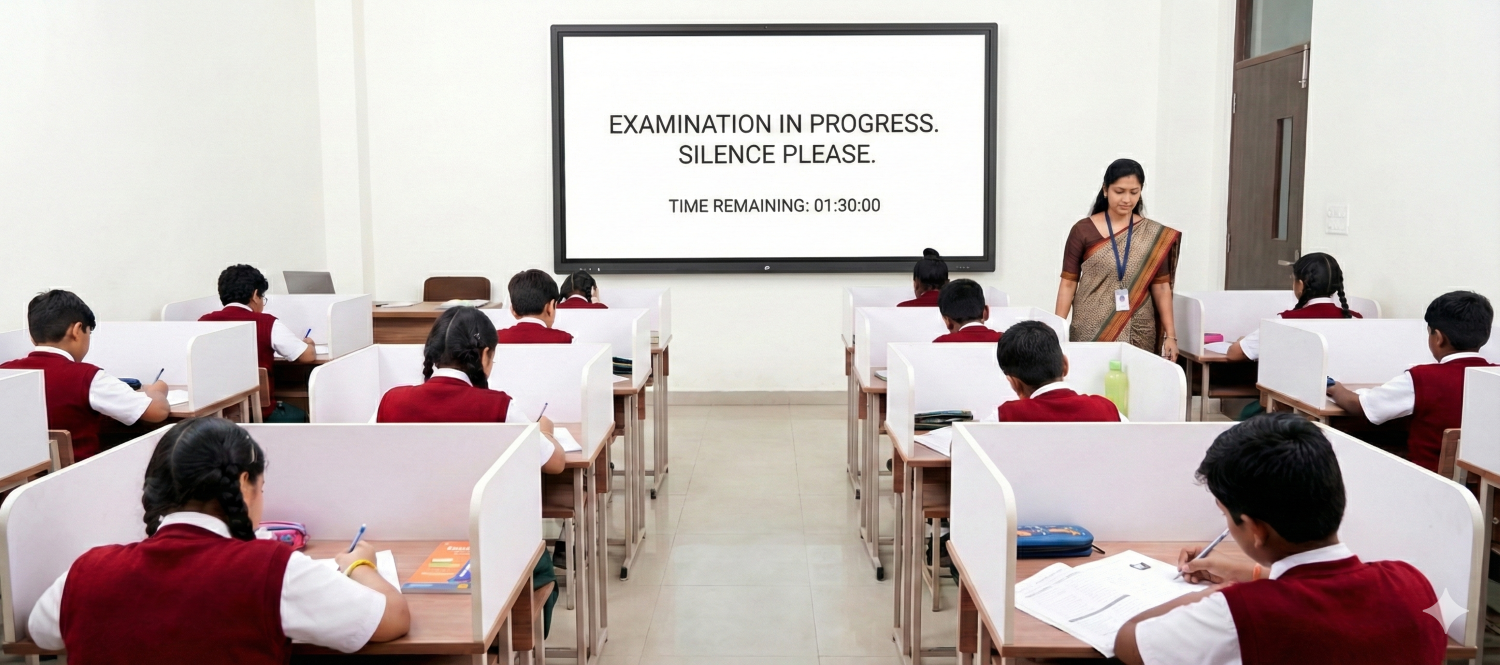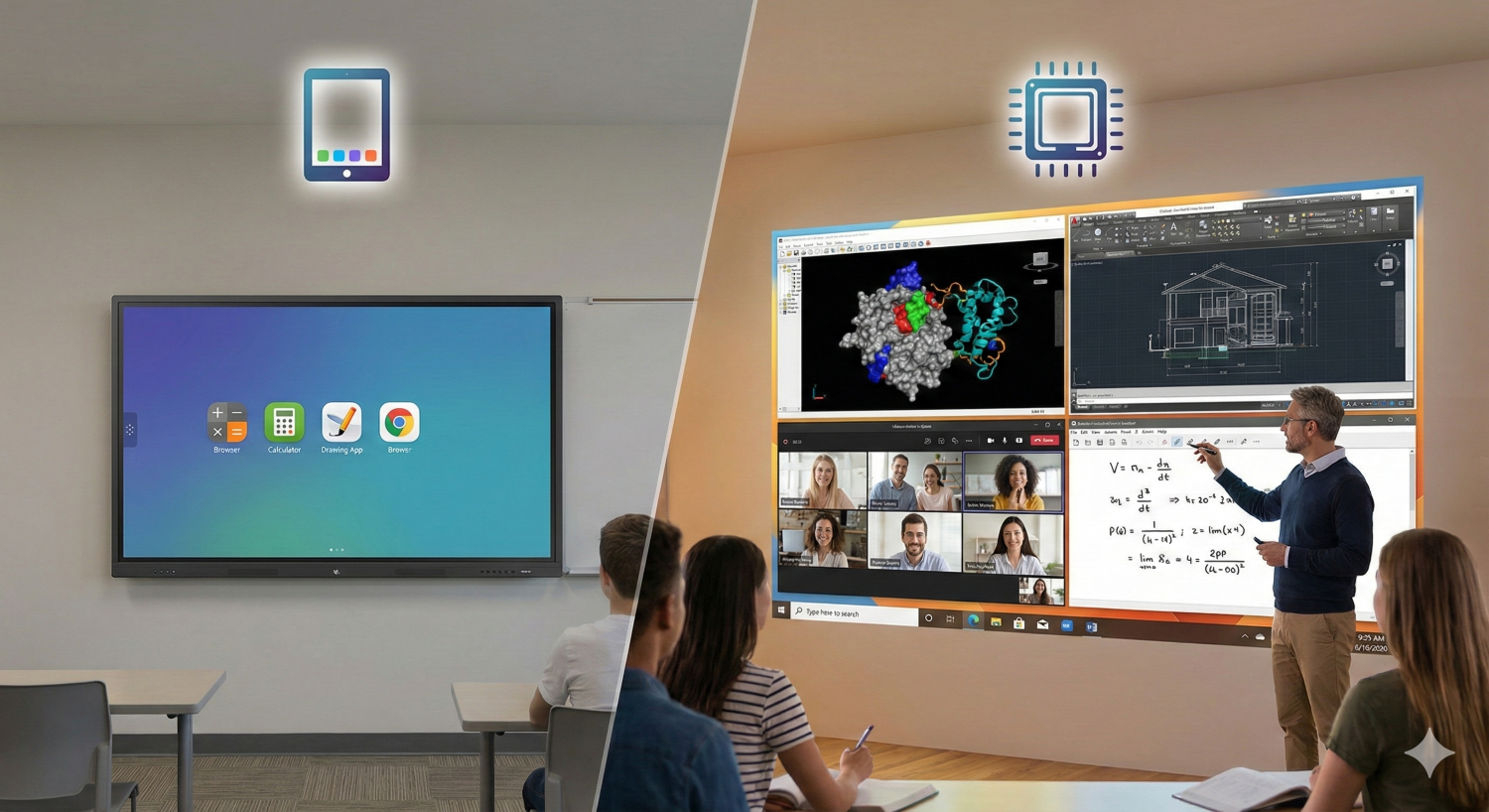12 Reasons the Importance of AI in Education Goes Beyond Smart Classrooms
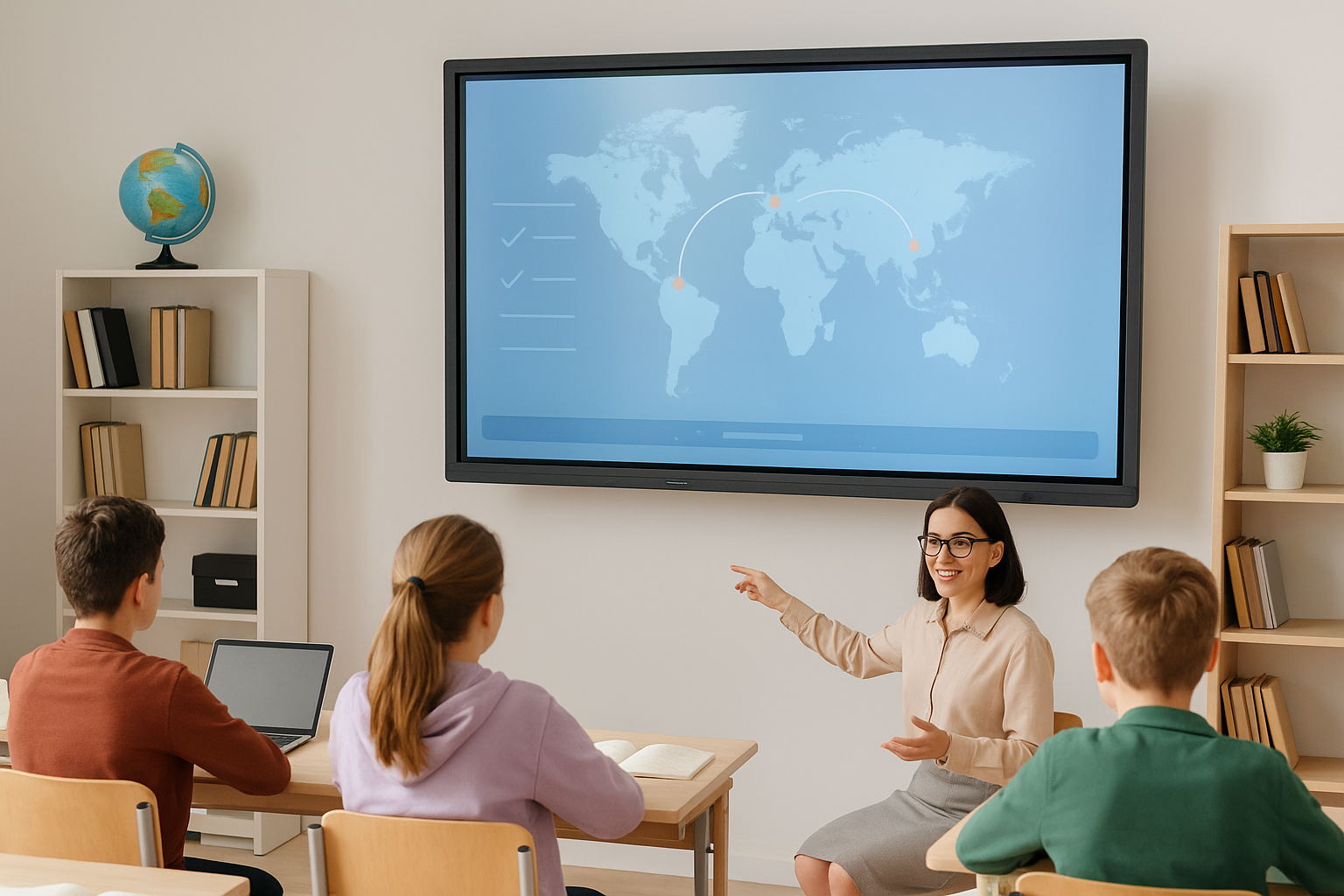
When schools first started talking about AI, most people imagined futuristic smart classrooms—big interactive boards, voice assistants, and shiny tech. But if you spend time with educators, you realize the story is much bigger. AI in education goes beyond installing devices or software. It’s reshaping how teachers teach, how students learn, and how institutions plan for the future.
Below are ten reasons why the importance of AI in education goes far beyond a smart classroom setup.
12 Powerful Reasons the Importance of AI in Education Extends Beyond Smart Classrooms
1. From One-Size-Fits-All to Personalized Learning
Walk into any classroom and you’ll see it—some students grasp a concept quickly, while others need more time. Traditionally, it’s tough for teachers to adjust on the spot. AI changes this. With personalized learning tools, lesson paths adapt to the student’s pace. In India, where class sizes often cross 40 or 50, this makes an enormous difference.
2. Smarter Assessments, Not Just More Tests
For years, exams have been about how many questions can be set and graded. AI-based assessment tools go deeper. They analyze patterns in answers, highlight weak areas, and even recommend follow-up material. This means tests are not just about marks but about growth. Schools adopting this approach report better outcomes over time.
3. Virtual Classrooms That Feel Real

As the pandemic unfolded, schools rushed to adapt and keep classes running online. The problem? Most setups felt like video calls, not classrooms. This is where the importance of AI in education becomes clear. AI-driven virtual classroom platforms now create environments where students can ask questions, collaborate on digital whiteboards, and feel part of the lesson—even from home. For higher education, this shift ensures access to quality learning without geography becoming a barrier.
4. Lightening the Teacher’s Load
Every teacher knows the exhaustion of lesson prep, grading, and administrative paperwork. AI tools now handle repetitive tasks like generating quizzes, checking objective answers, or sharing resources. This allows teachers to spend more time on what matters most—mentoring and supporting students. Technology isn’t replacing teachers; it’s giving them back time.
5. Collaborative Learning Gets a Boost
In traditional classrooms, group projects often meant one or two students carrying the team while others stayed quiet. AI platforms make collaborative learning more transparent. They can track contributions, suggest discussion prompts, and ensure that every voice gets heard. This kind of learning prepares students for the teamwork-driven workplaces they’ll step into later.
6. Data That Informs, Not Just Records
Schools generate huge amounts of information, attendance logs, exam results, homework records but much of it often goes untapped. With AI, data becomes actionable. This is another area where the importance of AI in education stands out. Administrators can see trends: which topics slow down entire batches, which classes show better engagement, and where teaching methods might need adjustment. For decision-makers, it’s like having a live dashboard for academic health.
7. Early Warnings for Struggling Students
A lesser-seen impact of AI in classrooms is its ability to predict trends before they fully surface. If a student shows signs of falling behind—low participation, repeated mistakes, missed submissions—the system can flag it early. Teachers can then intervene before it’s too late. In many Indian schools where parents often first notice decline only at report card time, this can be a lifesaver.
8. Supporting Teachers in Remote Areas
Urban schools often get the latest technology first, but AI’s real potential is in rural India. A virtual classroom supported by AI can connect a talented teacher in Delhi with students in a village in Bihar. Combined with local facilitators, this model can bridge gaps in teacher availability—something traditional smart boards alone cannot solve.
9. Preparing Students for an AI-Driven Economy
It’s not just about today’s classroom experience. The job market students will enter is rapidly changing. Careers in fields like data analysis, automation, and artificial intelligence are expanding faster than ever. By weaving AI into education early, schools highlight the importance of AI in education—ensuring students aren’t just consumers of technology but potential creators. This aligns with India’s National Education Policy (NEP 2020), which stresses future-ready skills.
10. Moving Beyond the Classroom Walls
AI doesn’t clock out when the school bell rings. AI-powered platforms now assist with after-class learning, whether it’s homework help, clearing doubts, or even offering career guidance, making education available well beyond school hours. Parents, too, can get insights into progress without waiting for annual meetings. Education becomes continuous, not confined to four walls.
11. Reducing the Learning Gap with Real-Time Insights
AI can flag when a student is struggling much earlier than traditional methods. Instead of waiting for exam results, teachers can see instant patterns in class performance and step in quickly. Highlighting the importance of AI in education, this approach reduces dropouts and helps every learner stay on track.
12. Encouraging Inclusive Education for All Learners
AI-powered platforms make it easier to accommodate diverse learning needs, from language translation for regional classrooms to text-to-speech for visually impaired students. This inclusivity ensures no student feels left out, a challenge many Indian institutions still face.
Why This Matters Now
The conversation around the importance of AI in education isn’t about gadgets. It’s about giving every learner equal access, making classrooms run smoother, and preparing students to thrive in a technology-first future. Smart classrooms are only the beginning. The bigger change lies in how AI personalizes, connects, and empowers the entire ecosystem of learning.
For decision-makers in K–12 and higher education, the question is no longer “Should we explore AI?” but rather “How fast can we adapt before we fall behind?”
Curious how AI is reshaping classrooms?
Discover practical ways AI can transform teaching and learning. Explore insights with Roombr that go beyond smart boards.
Foziya Abuwala
Share
Step Into the future of
Education with Roombr









